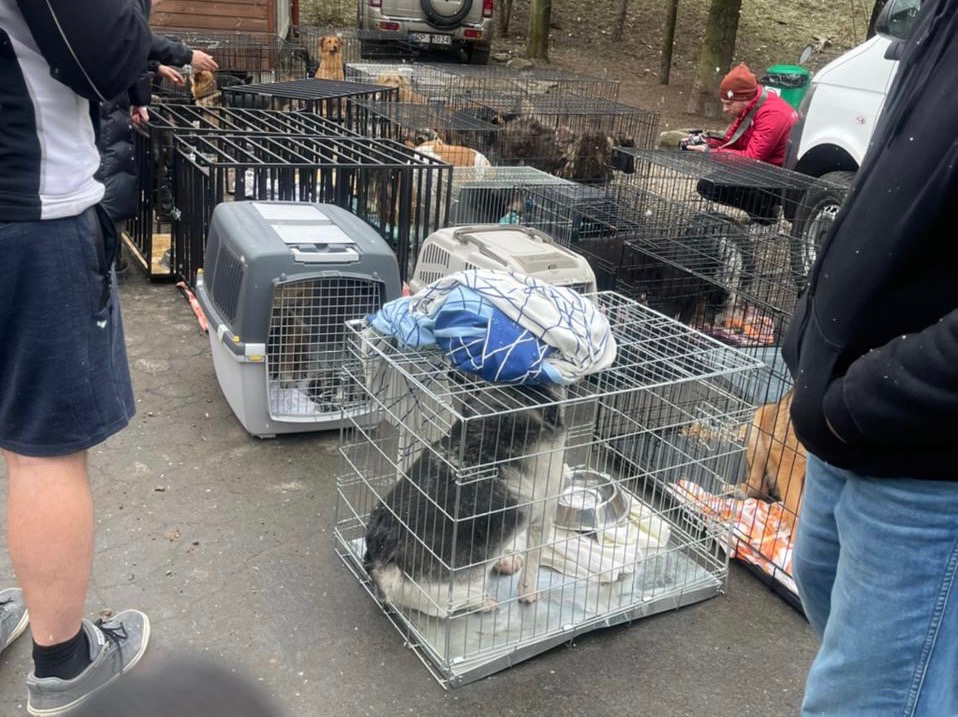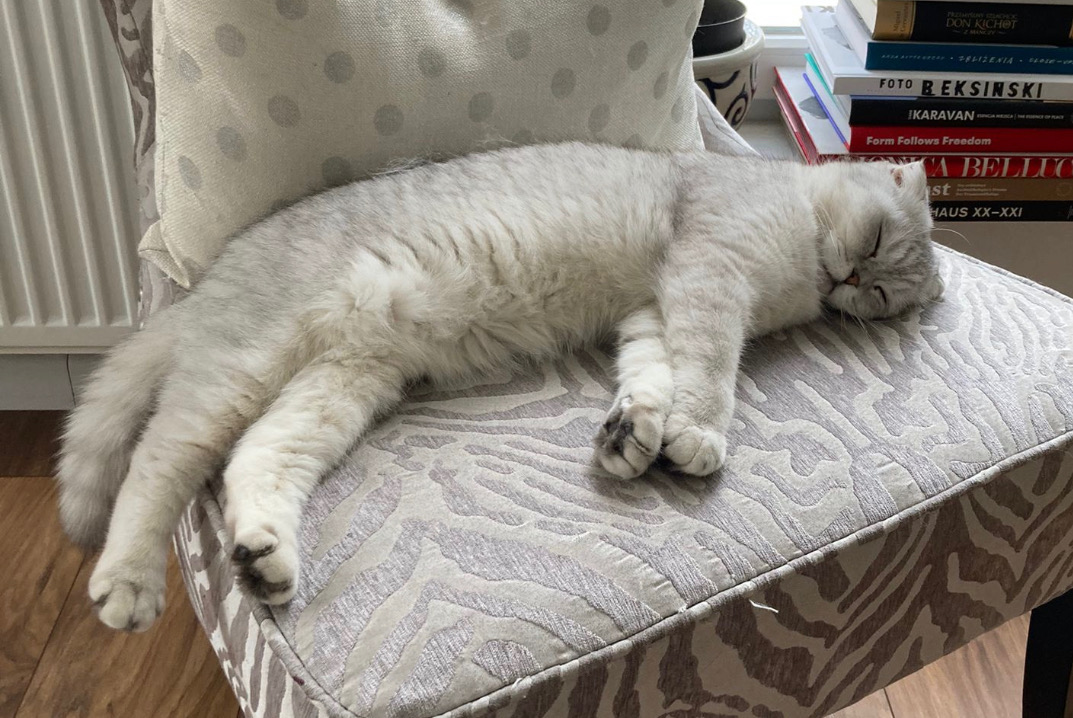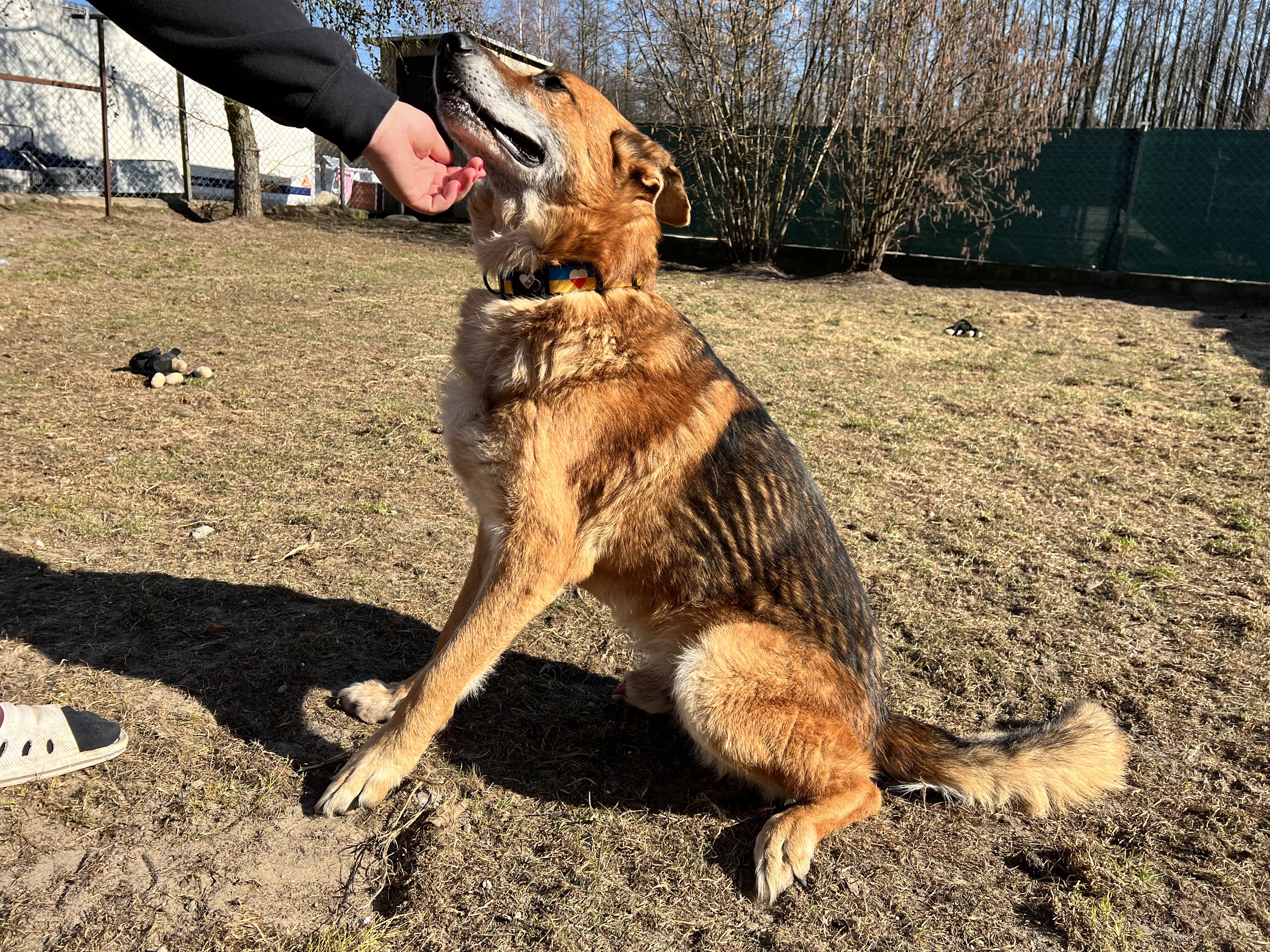Polish Volunteers Are Risking Their Lives to Save Abandoned Pets in Ukraine
Credit to Author: Anya Zoledziowski| Date: Mon, 21 Mar 2022 13:44:57 GMT
WARSAW, Poland – After Russia invaded Ukraine in late February, medical student Hamza Chowdhry spent three sleepless nights in Kyiv before he decided to flee the city. The 30-year-old hopped in his car with packed bags, canisters full of extra fuel, and his cat, and drove west towards Poland. Along the way, he saw Ukrainian tanks speeding down highways, and heard multiple explosions that made the already clogged traffic worse as people panicked and tried to circumvent each other.
It took Chowdhry upwards of 14 hours to make it to Lutsk, a city in northwestern Ukraine, where he stayed for over a week at a family-run hotel while he tried to figure out how to get out of the country. It wasn’t until a convoy of volunteers tasked with saving Ukrainian animals showed up that Chowdhry was able to find his way into Poland.
“They were volunteers coming from Poland all the way to Ukraine to pick up animals,” Chowdhry said. “They were saving humans, too.”

It’s a scene that’s been playing out regularly ever since the first animal rescue mission took place on Feb. 26, reported Polish newspaper Gazeta Wyborcza, as a mix of animal advocacy groups and grassroots volunteers work nonstop to collect hundreds of animals from Ukraine and bring them to safety. Janusz Żwański, a Polish postal worker who delivers antibiotics and helmets to Ukraine during his off days, sometimes collects Ukrainian cats on his way back to Poland.
Some animals arriving in Poland were strays in Ukraine. But others belonged to people who were unable to flee the country with their pets, or soldiers who stayed to fight but wanted their pets to reach safety. Some Ukrainian shelters have also transferred pets to Poland.
Earlier this month in Lutsk, volunteers had four or five vans and trucks packed with about 50 dogs and cats, if not more, Chowdhry said, and they were taking a short break at the same hotel where he was staying. It was the hotel owner who asked the crew if Chowdhry could catch a ride with them to Poland, he said.
A small group of women and children was also riding with the group.
“They (the volunteers) were like, ‘The cat has to come if you come,’” Chowdhry said. “I was very lucky to cross with them. I was staying in Lutsk because I was afraid to cross the border by myself because it might be a 24- or 48-hour wait at the border. It’s very hard to do alone.”
VICE World News previously reported how Black and brown people fleeing Ukraine have had a harder time crossing the border than Ukrainians due to the discrimination they’ve faced on site.
Together, the group of volunteers that welcomed Chowdhry aboard raced towards the Polish border near Lviv, Ukraine, at 10 p.m. on March 4. They blasted sirens and, according to Chowdhry, sped through red lights, before heading to the front of the line at the border. Frightened dogs were crying, and everyone on board worried they’d suffer from dehydration. Chowdhry said his cat, Kitty, was distressed and shedding a lot.

“One of the Ukrainian soldiers was not happy that we cut the whole line,” Chowdhry said.
“He said, “Look, there’s children in the line as well.” He loaded his gun in front of us, pointed the gun, and said, ‘I’m going to go back and shoot the animals if you don't go back in line.’”
Chowdhry said the lead volunteer managed to convince the soldier to let the group through; some animals would have died had they had to wait for several more hours without water.
“That’s why we were so frantic,” Chowdhry said. “The volunteers explained to them that we have papers and everything and these dogs are going to die.”
As soon as the team made it into Poland, Chowdhry said several animals were rushed to a nearby veterinary hospital, while others were transferred to other volunteers, ready to drive pets to shelters throughout the country—shelters like Judyta Fundacja Dla Szczeniąt, or Judyta Foundation for Puppies.
Drive about an hour west of Poland’s capital city, Warsaw, through vast fields and small European suburbs made up of large brick homes and small corner stores, and you’ll find the shelter. It’s located on one side of an open field and backs off onto a forest patch. Crates and kennels line the property in preparation for forthcoming animal rescue efforts.
The team at Judyta collaborates with other groups, including a pet rescue agency, Dolnośląski Inspektorat Ochrony Zwierząt, and Pegasus, a shelter, to retrieve, treat, and house Ukrainian pets.
“One day, volunteers will travel out for animals and the next day the building they visited gets bombed. So we’re really balancing life and death,” said Judyta’s vice president, Małgorzata Brzezińska. “That dogs were going to come from Ukraine, we already knew the day after the war started… but the situation exceeded our expectations.”
Judyta dog shelter specializes in caring for dogs who have severe health illnesses and injuries. The site sits on about 1.2 acres of land and includes rooms for veterinary treatment, physical rehabilitation, and plenty of outdoor space for play. The group has so far accepted just over 100 dogs from Ukraine, including about 30 or 40 with paralysis, lost limbs, or severe illnesses. (Many were already sick or injured before the war.)
“All the dogs in the worst state come to this site,” Brzezińska said.
Whenever there’s hope for a dog to regain mobility or health, the site provides the animal with costly long-term treatment. One dog, Mamba, can’t move her hind legs. The shelter is treating her and she’ll soon have a new set of wheels, so she can move around with ease. A German shepherd, Hrabia (meaning “Count” or “Lord”), worked with the Ukrainian army for eight years before developing a nerve condition that rendered one leg limp. Today, he’s at the shelter, where he receives pain management treatment.

Brzezińska said she understands some people may feel that saving animals from Ukraine should come second to helping people–but by helping animals, shelters like hers are helping people, including staff at Ukrainian shelters as well as families who’ve had to separate from their pets. She also said that because people have bred animals to be so dependent on them, it’s inhumane to expect them to survive alone in a war zone.
When the war first broke out, several Polish families showed up at the shelter, offering to foster Polish dogs—about 70 were moved out of the shelter to temporary homes, which made space for the influx of dogs from Ukraine, Brzezińska said. Pets from Ukraine have to be quarantined for about 30 days, but after that, she hopes they too will stay with foster families.
Brzezińska also plans to work with other shelters and animal advocacy groups to create a nationwide or international portal where Ukrainians can look for their lost pets online.
“We’re going to try the owners,” Brzezińska said.
Dogs with known owners will be kept safe until they’re retrieved in the future. Wera, a bronze cocker spaniel with a white patch on her chest, is staying at Judyta while her owner, a Ukrainian man, fights for his country. He dropped her off at the Poland-Ukraine border with a weapon in one arm and Wera in the other.
Chowdhry, the medical student who was living in Kyiv, has also been temporarily separated from his cat, Kitty. Chowdhry is a Canadian national but has family in Pakistan, so he left Europe for Pakistan after the Pakistani embassy helped him secure a flight. He’s currently staying with relatives, while Kitty, unable to travel to Pakistan, waits in Poland. A woman in Kraków is fostering her, and sends pictures to Chowdhry every day.
Pets who don’t have owners, such as those who were staying in Ukrainian shelters, will be put up for adoption when their quarantine ends. Brzezińska expects many more will arrive in Poland in the coming weeks as the war escalates.
“We’re really stretched thin,” she said. “Right now, we have an optimal number of dogs, but if there will be a need we will widen our walls. I don’t know how, but we’ll have to figure it out.”
Follow Anya Zoledziowski on Twitter.